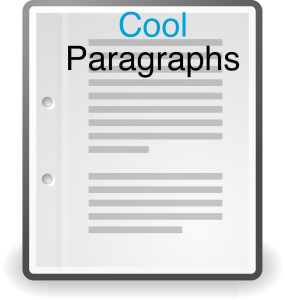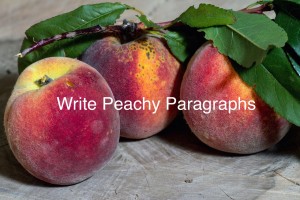“What’s the first thing acquisition editors look for when they begin reading a fiction submission? … ‘The first thing I do is find a scene with some dialogue. If the dialogue doesn’t work, the manuscript gets bounced. If it’s good, I start reading.’” —Renni Browne and Dave King (Self-Editing for Fiction Writers)
For me, dialogue:
- Brings characters alive with personality and moral character.
- Moves the plot along.
- Supplies information in a way that’s often more interesting than narration.
- Breaks up narration and furnishes a delightful interlude.
The following quotes are from Self-Editing for Fiction Writers —Renni Browne and Dave King. Examples are mine.
Explaining your dialogue.
- “When your dialogue is well written, describing your characters’ emotions to your readers is just as patronizing as a playwright running onto the stage and yelling at the audience. … Resist the Urge to Explain (R.U.E.)”
- “If you show how she is astonished through her dialogue or through a beat, then your readers will know a little more about her.”
- Examples (Before-B and After-A):
B. “You’ve got to be kidding,” he said in irritation.
A. He whisked off his glasses and rapped them against the document. “You’ve got to be kidding.”
B. “Oh, Suz. I love what you’ve done. I really do,” Liza gushed.
A. Lisa clasped her hands under her chin. “Oh, Suz. I love what you’ve done. I really do.” (Obvious gushing.)
B. “I’m not sure … I know what you’re talking about,” John said guardedly.
A. John lowered his brow and stepped back. “I’m not sure … I know what you’re talking about.”
The following quotes are from The Art & Craft of Writing Christian Fiction —Jeff Gerke. Examples are mine.
Sticking to said.
- “Why do [novelists] feel that said wouldn’t work? To avoid using said they insist that their characters not say words but growl, proclaim, or laugh them out, as if such a thing were possible. Try moaning out words. Go on, try it. You’re either moaning or you’re speaking not both. … Anything but said is painfully visible.”
- Example:
B. “I’ve got to wash the floor all over again,” Sandi groaned.
A. “Oh nooo! Now I’ve got to wash the floor all over again,” Sandi said.
Sounding authentic.
- “What I mean by authentic is that dialogue must be realistic, layered, and right for the character and the moment.”
- “Realistic dialogue is not formal or polite.”
- Example: “Now I must wash the floor again,” Sandi said.
- “Dialogue carries layers of meaning beneath the surface of the words actually uttered.”
- Example: “Thanks a lot,” Sandi said, glaring at the muddy footprints.
- “If you had, say, three characters speaking together and you removed all beats and speech attributes … the reader still ought to be able to know which character is speaking at any time.”
“By how he speaks, what he thinks about that comes out in his words, by the vocabulary he chooses, by his syntax and grammar and length of sentences.”
Example: Which is Sandi, her mother, and her husband?
“Oh nooo! Now I’ve got to wash the floor all over again.”
“Oops. Sorry, hon. Guess wiping my boots on the garage mat wasn’t enough, huh?”
“I’ll make quick work of cleaning up the mud. You two sit outside and enjoy a few minutes rest together.”
Heed these 2 experts’ teachings and make your dialogue shine. Click to tweet.
What do you enjoy most about good dialogue?













 RSS - Posts
RSS - Posts